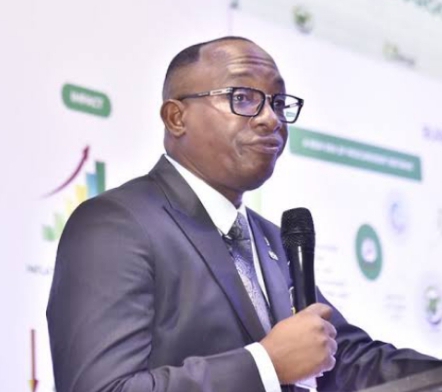The Bureau of Public Procurement (BPP), has recorded 500 procurement infractions in Ministries in the last seven months.
Its Director-General Adebowale Adedokun, disclosed this on Wednesday during the National Conference on Public Accounts and Fiscal Governance, organized by the Public Accounts Committees of both chambers of the National Assembly.
He blamed the country’s judicial system, expressing disappointment over its failure to deliver convictions in cases of procurement violations, despite comprehensive evidence provided by oversight agencies.
According to him, the lack of consequences emboldens offenders and erodes public trust in regulatory frameworks.
“People keep breaking the rules because they know they won’t face any penalties,” he added.
He noted that Nigeria has failed to discipline public officers for procurement violations or budgetary mismanagement
He expressed frustration over the widespread practice of initiating large-scale projects without adequate funding, describing it as both wasteful and a breeding ground for corruption.
“It is alarming to see ₦10 billion or ₦5 billion projects allocated just ₦300 million in the budget. This is a clear setup for variations or repeated appropriations, which encourages waste and abuse,” he stated.
Adedokun lamented that numerous federal projects have lingered for over two decades, some dating back to the year 2000, yet continue to receive yearly allocations without any verifiable progress or completion.
He criticized the ongoing disregard for international best practices in public finance management, particularly the requirement that capital projects must be fully funded before execution begins.
“Globally, it is standard that a project must have complete funding before it starts. But here, contracts are being awarded without any secured funding, which is a clear violation of the Public Procurement Act,” he said.
He disclosed that in recent months, the Bureau uncovered several instances where contracts were not only awarded but also executed without any financial provision, a situation he warned could jeopardize the effective implementation of the 2024 budget.
Adedokun,who sought a shift in Nigeria’s oversight culture, Adedokun urged agencies such as the Fiscal Responsibility Commission, the Independent Corrupt Practices and Other Related Offences Commission (ICPC), and other accountability institutions to begin monitoring from the budget planning stage, not after disbursement or project failure.
“If we genuinely want to curb corruption and fiscal waste, oversight must begin at the planning stage of the budget. Waiting until funds are disbursed or projects collapse is simply reactive,” he emphasized.
Adedokun implored lawmakers and government institutions to promote a culture of fiscal responsibility by embedding transparency, prudence, and global standards into all stages of budgeting and procurement.
He recommended that Ministries, Departments, and Agencies (MDAs) should be mandated to provide verifiable evidence of what they achieved with previously allocated funds before being considered for new budgetary provisions.
“Let them come forward with data, what exactly was done with the last appropriation? That must be the basis for any fresh approval,” he insisted.
He called for an end to the recurring trend of inserting underfunded projects into the national budget, arguing that such practices only lead to perpetual “ongoing” projects and undermine effective service delivery.

